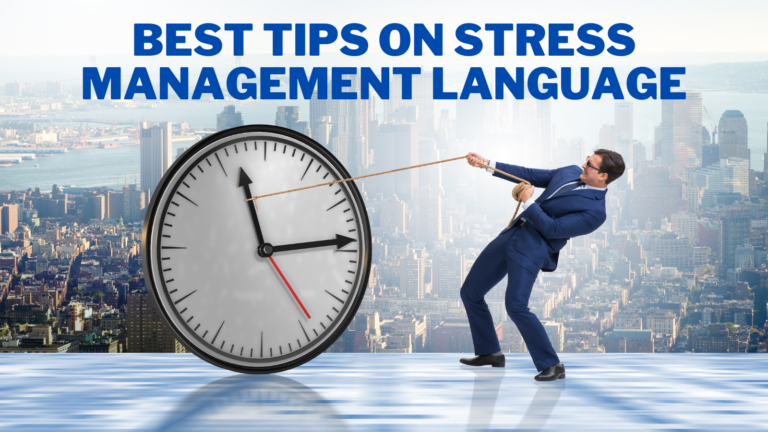Best Ways To Relieve Stress And Anger
Best Ways To Relieve Stress And Anger
Stressful situations follow us around. Most of us have experienced ruminating or hanging onto unfavourable emotions concerning stressors or disputes.
Unfortunately, this propensity can potentially intensify and even prolong our stress. It can get tougher to control your anger as it becomes more entrenched as your annoyance and anxiety increase.
In this article, I’ll share a few tried-and-true methods to help you quit dwelling on your anger and let it go for good.

What Are Stress and Anger?
We frequently feel stressed and angry in response to many life events and situations. Stress is the body's reaction to a perceived threat or challenge, whereas fury is a normal emotional reaction to a perceived threat or injustice.
Physical, emotional, and behavioural symptoms of stress can all appear. Headaches, tense muscles, and weariness are common physical signs of stress, and anger, worry, and depression are possible emotional signs.
Changes in appetite, social disengagement, and sleep problems are all examples of behavioural signs of stress.
Anger is a normal reaction to perceived threats or injustices and can also be physical, emotional, and behavioural symptoms. Anger can manifest physically as elevated heart rate, blood pressure, and temperature.
Anger can have physical and emotional effects, including elevated heart rate, blood pressure, and muscle tension. Aggression, screaming, and the propensity to lash out are behavioural signs of anger.
Stress and anger can harm our mental and emotional health if experienced frequently or for long periods.
Physical and mental health issues, such as heart disease and stroke, have a link to chronic anger and a higher chance of both.
On the other hand, persistent stress is associated with several health problems, such as heart disease, high blood pressure, and digestive disorders.

The Importance Of Stress and Anger Management For Physical And Mental Health
Our productivity, inventiveness, and judgment capacity can all be negatively impacted by adverse health impacts, ongoing stress, and rage.
Concentrating on work and making wise decisions might be difficult when we are frequently worried or irritated. This may result in decreased productivity, missed chances, more stress, and dissatisfaction.
There are many reasons why it is important to relieve stress and anger. Experiencing chronic stress and anger can have negative effects on both our physical and mental health, leading to a range of issues such as:
1. Cardiovascular Disease
An increased risk of cardiovascular illness, including high blood pressure, heart attacks, and stroke, is related to chronic stress and anger.
2. Mental Health Issues
Chronic stress and anger are linked to various mental health issues, including depression, anxiety, and substance abuse disorders.

3. Impaired Immune System
Chronic stress and anger can weaken the immune system, making individuals more susceptible to illnesses and infections.
4. Interpersonal Problems
Chronic stress and anger can negatively impact relationships with friends, family, and colleagues. These emotions can lead to conflict and breakdowns in communication.
5. Decreased Quality of Life
Chronic stress and anger can impact an individual's overall quality of life, leading to dissatisfaction and decreased enjoyment of activities and hobbies.
By learning effective stress and anger management techniques, individuals can reduce the negative impact of these emotions on their lives and promote physical and mental health.
This can lead to greater well-being, improved relationships, and a better quality of life.

Ways To Relieve Stress And Anger
Have you ever felt stress and rage taking over your life? You're not by yourself. The demands of job, family, and other commitments can easily make people feel overburdened in today's environment.
Numerous original and inventive ways exist to accomplish this, from writing or painting to meditating and being grateful.
Using these approaches, you can achieve balance, lessen stress, and enhance your general well-being.
So read on to learn about novel ways to let stress and fury out, whether you're feeling frazzled or just seeking fresh ideas to manage your emotions.

1. Exercise
Anger and stress can both be effectively managed through exercise. Endorphins are bodily molecules that naturally uplift mood and lessen pain perception.
Physical exercise aids in their release. Additionally, by reducing stress, endorphins might make you feel more at ease and enhance your sleep.
Regular physical activity can help you avoid the source of stress or rage while also giving you a constructive outlet for your feelings. In addition to giving you a sense of control, exercise might be beneficial if you're overwhelmed.
You have many fitness options, including vigorous workouts and relaxing activities like yoga or walking. Finding a fit activity that you enjoy is crucial.
Finding an activity that you like and that fits your lifestyle is the key. Working out with a partner or enrolling in a group fitness class can be beneficial for accountability and inspiration.

2. Deep Breathing
Deep breathing is a simple yet effective technique that can help relieve stress and anger.
When stressed or angry, our breathing tends to become shallow and rapid, further exacerbating these emotions.
Deep breathing exercises can help counteract this by slowing your breathing and calming your mind and body.
Find a calm area to sit or lie down to practice deep breathing comfortably. Put your eyes closed and inhale deeply through your nose to fill your lungs with air.
After holding your breath for a moment, slowly open your mouth to let the air out of your lungs. Repeat this procedure numerous times, concentrating on how your breath feels as it enters and exits your body.
You can also add visualization or mantra to your deep breathing exercises. For example, you could visualize a peaceful scene like a beach or forest or repeat a calming phrase like “I am calm and relaxed” with each breath.
Deep breathing exercises can be done anytime, anywhere, and are especially helpful in high-stress situations like a traffic jam or an argument with a loved one.
Deep breathing can become a powerful tool in managing stress and anger with regular practice.

3. Meditation
Since ancient times, people have utilized meditation to increase relaxation, lower tension, and enhance general well-being.
It entails concentrating on a certain thing, word, or phrase while letting go of distracting thoughts and feelings.
Find a calm, cozy spot to sit or lie down to meditate. Close your eyes and take a few deep breaths to help your body and mind relax.
Then, concentrate on a single word or phrase, your breath, or both. If your thoughts stray, gently bring them back to your breathing or the chosen focus point.
Meditation can aid in developing self-awareness and mindfulness, which can be beneficial in controlling stress and rage.
You can learn to identify triggers and respond more collected and helpfully by creating a greater awareness of your thoughts and emotions.
Practicing meditation daily can aid in lowering stress, enhancing focus, and fostering inner peace.
Finding a meditation style that suits you is crucial because there are many different varieties of meditation.
While some people prefer more conventional types of meditation like Zen or Vipassana, others find guided meditation or meditation apps a strong technique for controlling stress and rage and enhancing general well-being.

4. Journaling
Writing down your ideas, emotions, and experiences in a journal or notebook is a technique known as journaling.
The process of processing your feelings and gaining an understanding of the circumstance it can be a beneficial technique to reduce stress and rage.
Set aside time each day to write in your journal to get started. Select a location that is peaceful and conducive to concentration.
Refrain from bothering about grammar or spelling as you start jotting down whatever comes to mind. Write as honestly and openly as you can without self-censoring or judging.
You can see patterns or themes in your thoughts and emotions while journaling. This can assist you in gaining an understanding of the primary causes of your stress.
This can provide insight into the underlying causes of your tension or anger and show you how to control these feelings better.
Additionally, journaling gives you a sense of release, enabling you to let go of unfavourable thoughts and emotions and proceed with a clearer head.

5. Listening To Music
Listening to music is quick and fun to let stress and rage out. According to research, listening to music has a relaxing effect on the body and mind and can even work to lower cortisol levels.
Select calming music or music that you associate with good feelings to use music as a stress and anger management strategy.
This could be your favorite musician or genre, the sounds of nature, or classical music. Since everyone has various musical preferences, picking the music you like and find soothing is crucial.
After selecting your music, locate a quiet area where you may listen without interruption. To immerse yourself in the experience, close your eyes and concentrate on the music's tone.
To improve the calming effects of the music, take slow breaths or picture a soothing image.
You can use music to change your energy and mood when you're frustrated or furious. You can improve your mood and release stored energy by listening to upbeat or rhythmic music.
Another enjoyable and successful method of letting stress and anxiety out is to dance or move to the music.
Including music in your self-care routine, whether you like calming or upbeat music, can be a great tool for controlling stress and rage.

6. Practicing Self-Care
Self-care is a crucial part of controlling stress and anger. Self-care consists of doing things to improve your physical, emotional, and mental wellness.
By engaging in these activities, you may recharge, de-stress, and feel happier and more content overall.
Depending on your tastes and needs, self-care activities can differ greatly. A few typical choices are taking a warm bath or shower, engaging in yoga or meditation, reading a book, taking a walk in the park, spending time with loved ones, or simply taking a few minutes to sit quietly and contemplate.
Make a note of the activities you like and find calming to start incorporating self-care into your daily routine. Then, make time in your daily or weekly plan for these activities.
Making self-care a top priority and an essential component of your day, just like eating and sleeping, is crucial.
Setting limits and declining obligations that deplete your energy or stress you out are other forms of self-care.
It's critical to be aware of your own needs and limitations and to respect them by refusing requests when required.
Engaging in frequent self-care can enhance your capacity to handle stress and better control your emotions.
Self-care can also assist you in growing in self-awareness and self-compassion, both of which are effective long-term stress and anger management strategies.

7. Taking A Break
Taking a break, especially when you feel overburdened or trapped in a challenging circumstance, is an effective method to handle stress and anger.
The best action is to remove yourself from the circumstance and allow time to regroup.
Taking a break might involve various activities depending on your tastes and needs. Walking or mild exercise can help some people relieve tension and clear their brains. Others could want to nap or relax and meditate.
This may entail switching off your phone or computer or looking for a peaceful area where you can be by yourself and think.
After a respite, you can address the subject with new insight and vigour. Taking a break can also help you gain clarity and insight into the situation, enabling you to make better-informed decisions and improve communication with others.

8. Expressing Creativity
Getting creative is an excellent method to control your tension and rage. It may be incredibly pleasant and emotionally rewarding to be fully immersed in creative work since it allows you to express yourself in novel and original ways.
Depending on your interests and skills, creative pursuits can take on a wide variety of forms.
While some people find writing, performing music, or dancing helpful, others find it more beneficial to create art through painting, drawing, or sculpture.
Whatever shape your creativity takes, producing can aid in stress relief and relaxation.
It's crucial to put more emphasis on the process than the outcome when engaged in creative endeavours.
This entails letting go of self-criticism and allowing yourself to explore and experiment without caring about the results.
One should approach them with curiosity and openness when engaging in creative endeavours since the journey, not the destination, matters.
Creative activities can improve your self-esteem, foster a sense of success, in addition to assisting you in controlling your stress and anger.
You can boost your confidence and increase your sense of value when you produce something you're proud of.

9. Talking To A Friend Or Therapist
An effective strategy to deal with stress and anger is to talk to someone you trust, like a friend or family member or a mental health expert, like a therapist or counsellor.
When you chat with someone else about it, you can let your feelings out and gain perspective.
Speaking with a friend or member of your family who knows you well and can offer emotional support can be beneficial.
Additionally, they can provide a new point of view on the matter, which can be helpful when you're feeling stuck or overextended.
Talking to a mental health professional can be extremely beneficial because they are qualified to offer support and direction for managing emotions.
You can learn coping mechanisms from your therapist or counsellor and investigate the root causes of your stress or anger.
Additionally, they can offer a private, secure setting where you can express your feelings and work through challenging problems.
Being open and honest while discussing your emotions with another person is crucial. This entails being open to expressing your ideas and emotions without inhibition or concern for rejection.
It also entails being receptive to suggestions and direction from the other person.

10. Getting Enough Sleep
Sleeping enough is essential for controlling stress and rage. Lack of sleep causes your body to create more stress chemicals, which may make you feel more agitated and anxious.
Sleep-deprived can also impact your attitude, making you angrier and less patient.
Creating a regular sleep schedule is crucial to ensure you receive enough rest. This entails waking up and going to bed simultaneously every day, including weekends.
Making the environment suitable to sleep, such as keeping the room cold, dark, and quiet, is also helpful.
Additionally, it's critical to maintain excellent sleep hygiene, which includes minimizing screen time in the evening and abstaining from coffee and alcohol before bed.
Instead, relax before bed by doing something enjoyable like reading a book or having a warm bath.
The ability to approach problems with a clearer, more focused mind comes from getting enough sleep, which can help you manage stress and anger better.
You're better able to handle challenging circumstances and make more sane decisions when well-rested.

Conclusion
Keep in mind that everyone handles anger & stress differently. If you are constantly furious and stressed, you may need to take additional action to deal with your emotions.
Breaking habits and implementing new tactics is difficult when you're not at your best. An expert in mental health might be consulted for assistance.
I trust you enjoyed this article about the Best Ways To Relieve Stress And Anger. Please stay tuned for more blog posts to come shortly.
JeannetteZ
>>>Please click here to read my all-inclusive article about Lessons That Will Teach You All About Stress<<<
>>>Are you interested in Natural Healing And Stress Relief through Herbs? Please click here for my #1 Recommendation<<<
Your Opinion Is Important To Me
Thoughts? Ideas? Questions? I would love to hear from you. Please leave me your questions, experiences, and remarks about the Best Ways To Relieve Stress And Anger in the comments section below. You can also reach me by email at Jeannette@Close-To-Nature.org.
Disclosure
This post may contain affiliate links. I earn from qualifying purchases as an Amazon Associate and other affiliate programs. Please read my full affiliate disclosure.
You might also enjoy these blog posts:
Natural Vitality Natural Calm Gummies
How To Relieve Stress And Anxiety








